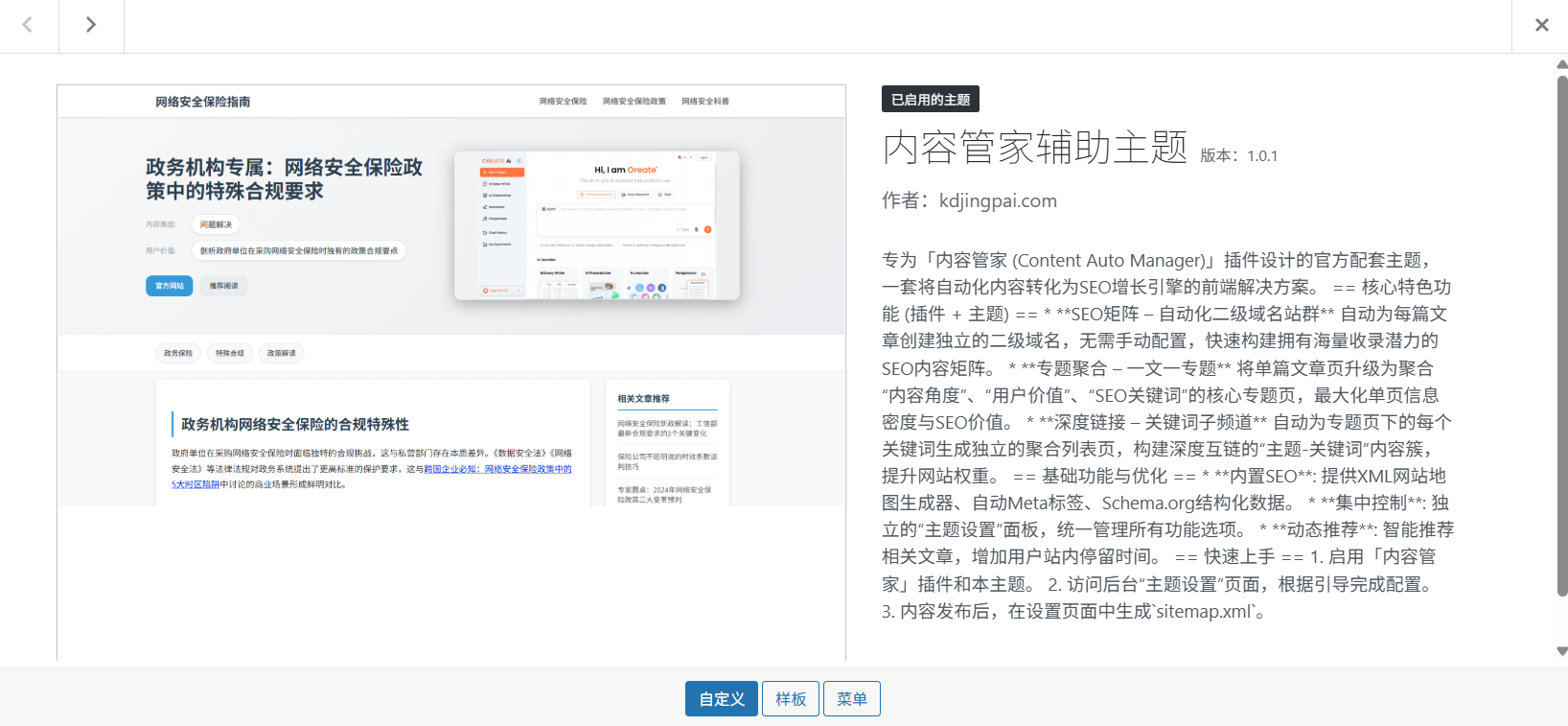MindLift is a free AI mobile app designed to help users improve their mental health. It uses the principles of Cognitive Behavioral Therapy (CBT) and Positive Psychology to provide users with personalized daily affirmations and guided exercises. The app's core feature is the "60-second mind reset," which is designed to help users quickly adjust their mindset when they feel anxious, have self-doubt, or are stuck in a negative thought process.MindLift tracks users' emotions and provides intelligent support based on input. MindLift is designed with privacy in mind, supports offline use, and promises not to share or sell users' personal data, so users can record and manage their emotional state with confidence.
Function List
- AI-driven daily affirmations: Receive highly personalized affirmations based on the user's mood, goals, and current mental state.
- Emotional check-ins and emotional support: Users can easily record their feelings and the app provides empathetic responses and targeted support.
- Goal-oriented affirmations: Users can set their own wellness goals (e.g., reduce anxiety, build confidence), and the app will provide relevant affirmations to assist in achieving those goals.
- Scientific methodological support: The functionality of the app is built on scientifically proven methods such as Cognitive Behavioral Therapy (CBT) and Positive Psychology.
- Privacy First Design:: All data is protected and the app is committed to safeguarding user privacy by not sharing or selling personal information.
- Offline working mode: Core functionality works without an Internet connection, ensuring that users have support wherever and whenever they need it.
- Totally free: All features of the app are permanently free and there are no ads.
Using Help
MindLift is an easy-to-use, user-friendly mental health tool designed to be integrated into the user's daily life and provide immediate and effective emotional support. Below is a detailed usage flow to help you get started quickly.
Step 1: Download and Installation
First, you need to find MindLift in your smartphone's app store.
- Open it on your phone.
App Store(Apple iOS devices) orGoogle Play(Android devices). - Type "MindLift" in the search box.
- Once you have found the application, click on the "Download" or "Install" button. The application is completely free and does not require any payment or credit card binding.
Step 2: Initial Use and Personalization
Once the installation is complete, open the app. When you first use it, MindLift will walk you through some simple personalization settings so that the AI can better understand your needs.
- target setting: The app asks you what you want to improve. You can choose from a range of options, such as "reduce anxiety before meetings", "overcome self-doubt", "build self-confidence" or "improve sleep". sleep", etc. These goals will help the AI recommend more relevant affirmations and exercises for you.
- Basic Information: The app may ask some basic questions to better serve you, but all information is kept strictly confidential.
Step 3: Core Functions - 60 Second Mind Reset
This is MindLift's most distinctive feature, designed for those moments when you need immediate help. When you feel panicked, anxious or stuck in negative thinking, you can follow these steps:
- Open the MindLift app immediately.
- On the main screen, there is usually an obvious button such as "Start Reset" or "I need help".
- Upon clicking, the AI will immediately guide you to an exercise that lasts about 60 seconds. This exercise is usually an audio or text guide with affirmations customized to your goals. For example, if you have meeting anxiety, it might say, "Your preparation is adequate and your points have merit. Take a deep breath and focus on your first point."
- Follow the guide through this short exercise, which will help you interrupt the spiral of negative thinking and calm your mind quickly.
Step 4: Everyday Use - Emotional Check-ins & AI Journaling
Getting into the habit of recording your emotions on a daily basis is a key step in improving your mental health.
- Daily sign-in:: Every day when you open the app, it invites you to "check in" with your emotions. You can choose from a list of emoticons or words that best match your current feelings, such as "happy", "calm", "anxious" or " tired". Tired".
- Interacting with AI: After you choose an emotion, MindLift's AI responds like an empathetic friend. It might say, "It looks like you're feeling a little anxious today, and that's okay. Let's deal with that feeling together."
- Receive personalized affirmations: Based on your emotions and goals, AI generates personalized affirmations for you for the day. You can read them aloud or recite them in your mind. These affirmations are designed to reinforce positive thought patterns.
Step 5: Explore and Grow
In addition to daily check-ins, you can actively explore other resources in the app.
- Browse the Affirmations DatabaseMindLift offers a rich library of affirmations categorized by topics such as "dealing with criticism", "boosting self-confidence", "letting go of the past", etc. You can browse through them at any time to find words that will inspire you. You can browse through them at any time to find words that inspire you.
- Tracking progress: Included within the app is a data analysis feature that allows you to see trend graphs of your mood changes. By visualizing the graphs, you can visualize your progress more intuitively and identify patterns in the appearance of specific emotions for better self-management.
Step 6: Privacy and Offline Use
MindLift takes user privacy very seriously.
- data security: Your diary and mood data is stored locally on your device, not uploaded to cloud servers, and never sold or shared.
- Offline use: Because core functionality and data are local, even if your phone doesn't have an internet connection (e.g., on the subway or airplane), you can still use MindLift to reset your mind or record your emotions, ensuring that support never stops.
By following these steps, you can effectively integrate MindLift into your daily life, making it a readily available and private psychological support tool.
application scenario
- Stress Management for Workplace Professionals
As people in the workplace often experience high levels of stress and performance anxiety in the run-up to important meetings, presentations or project deadlines, MindLift's "60-second mind reset" feature can be used as an instant intervention tool to help users calm their heart rate and adjust their mindset through scientific guidance in the moments of anxiety, so that they can meet the challenges with more confidence and focus. They can then take on challenges with more confidence and focus. - Test and Social Anxiety Coping in Student Populations
Students face academic stress, test anxiety, and complex social situations. When frustrated by a failed exam or upset by social interactions, use MindLift for emotional check-ins and AI-guided journal entries. This helps them process and understand their emotions and build greater mental toughness through positive affirmations. - Personal Growth and Positive Habit Formation
MindLift is an ideal tool for users who want to improve their self-awareness and establish long-term positive thinking habits. By setting personal growth goals (e.g., "be more patient," "love myself more") and consistently receiving daily goal-oriented affirmations, users can subconsciously reshape their thinking patterns and apply the principles of positive psychology to their daily lives. - Dealing with daily frustrations and negative emotions
Life is full of little frustrations, such as arguments with family members, a bad day at work, or just plain low moods. mindLift provides a safe space for users to record these negative feelings at any time. the AI's empathetic response and guidance can help users better deal with these emotions instead of letting them fester, preventing minor issues from turning into ongoing psychological distress.
QA
- How does MindLift's AI personalization work?
MindLift's AI combines natural language processing and machine learning algorithms. As you perform emotional check-ins, set goals, or interact with the AI, the system analyzes the content of your input and behavioral patterns. Based on this data, the AI matches and generates affirmations and guided exercises for you from a library of content created by cognitive-behavioral therapists that best fit your current needs. - Can I really see results in 60 seconds?
"60 Seconds to Results" refers to the app's core feature, "Thought Reset", which interrupts the vicious cycle of negative thinking in a short period of time. This feature is based on the psychological technique of "pattern interruption", which is a quick, focused exercise that shifts your attention away from negative thoughts, resulting in an immediate sense of relief. Although it does not solve deep-seated psychological problems, it is very effective in dealing with sudden anxiety. - Is my mental health data private?
Yes. MindLift prioritizes user privacy. All your mood records and personal data are stored on your phone's local device and are not uploaded to cloud servers. The development team promises to never sell or share your personal information with third parties. - How is MindLift different from other health apps?
MindLift is different in three main ways: first, it's completely free and ad-free, aiming to make mental health tools accessible to more people. Second, it has personalized AI at its core, providing more targeted support than generic content. Third, it emphasizes "instant intervention," especially the "60-second mind reset" feature, which focuses on providing quick support in the moments when users need help the most.


































